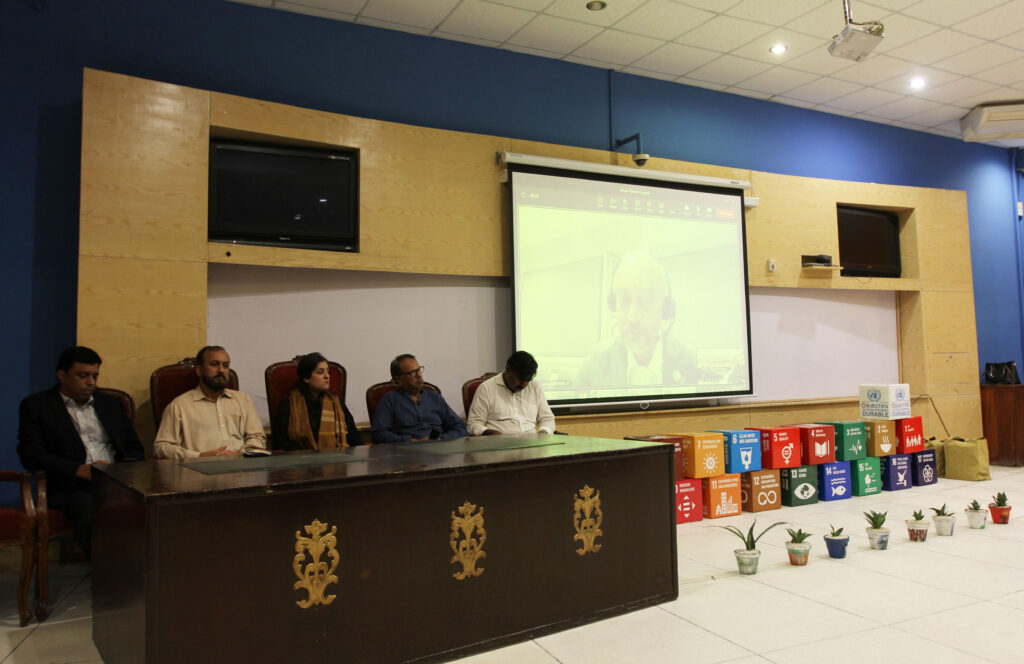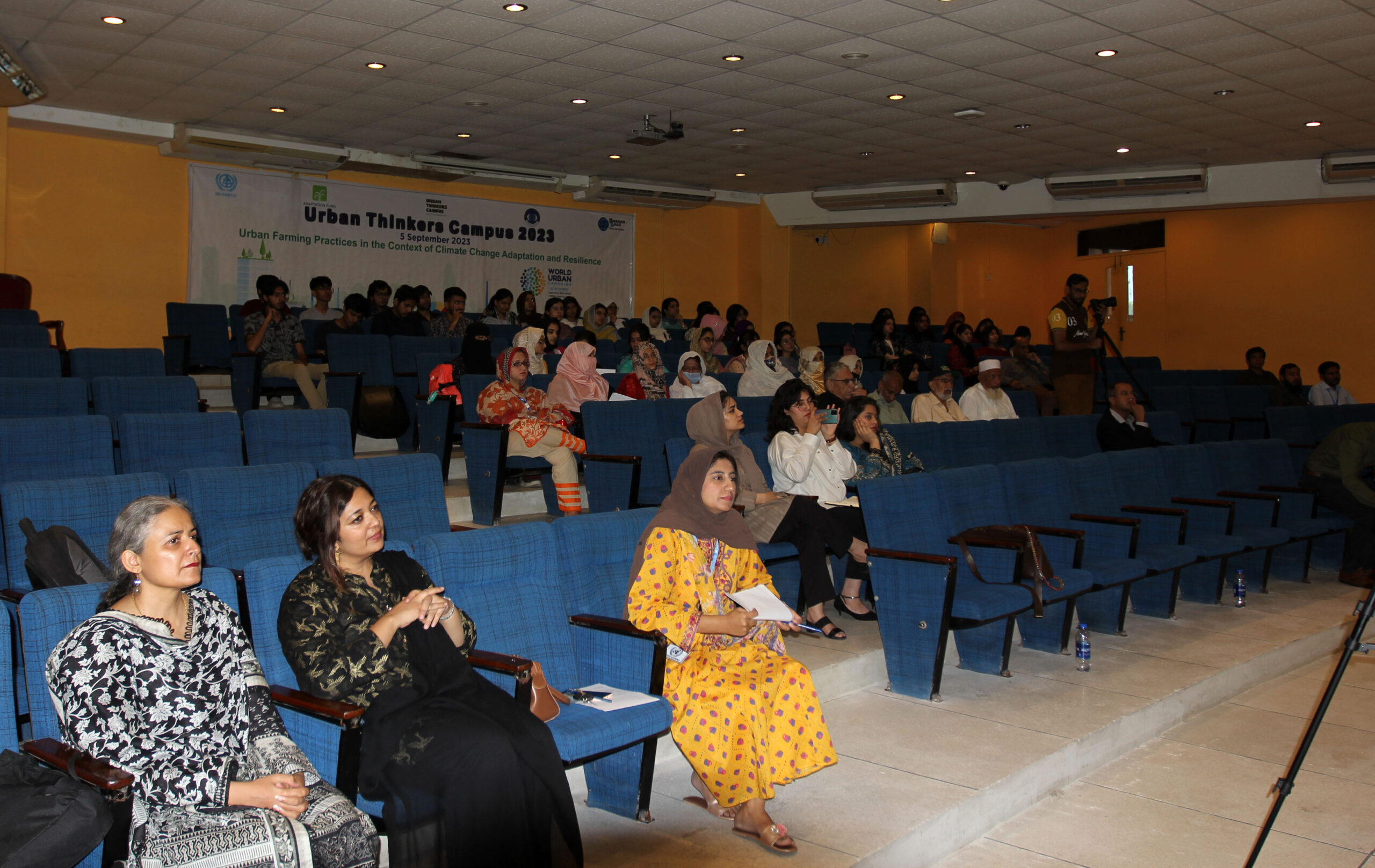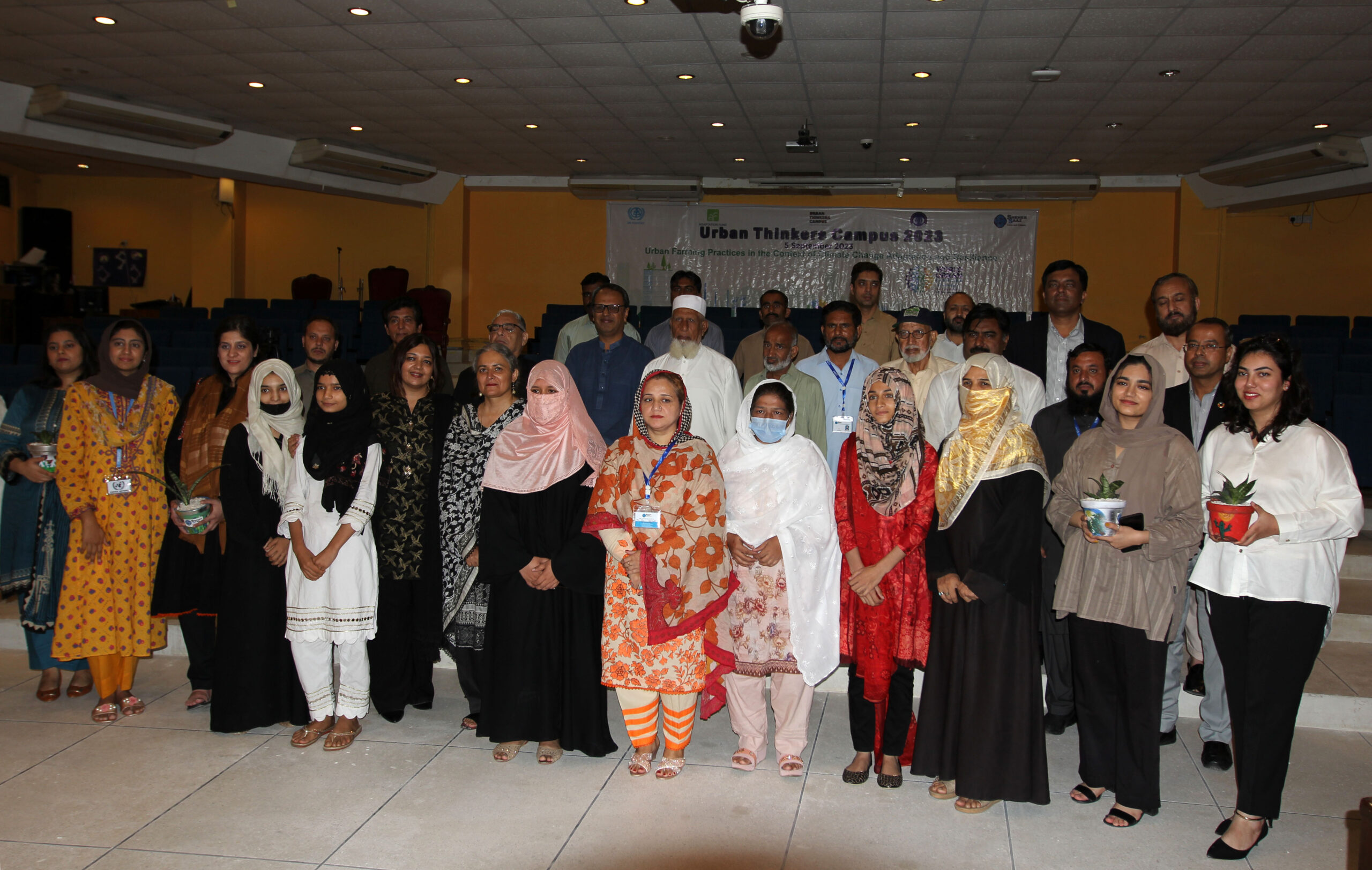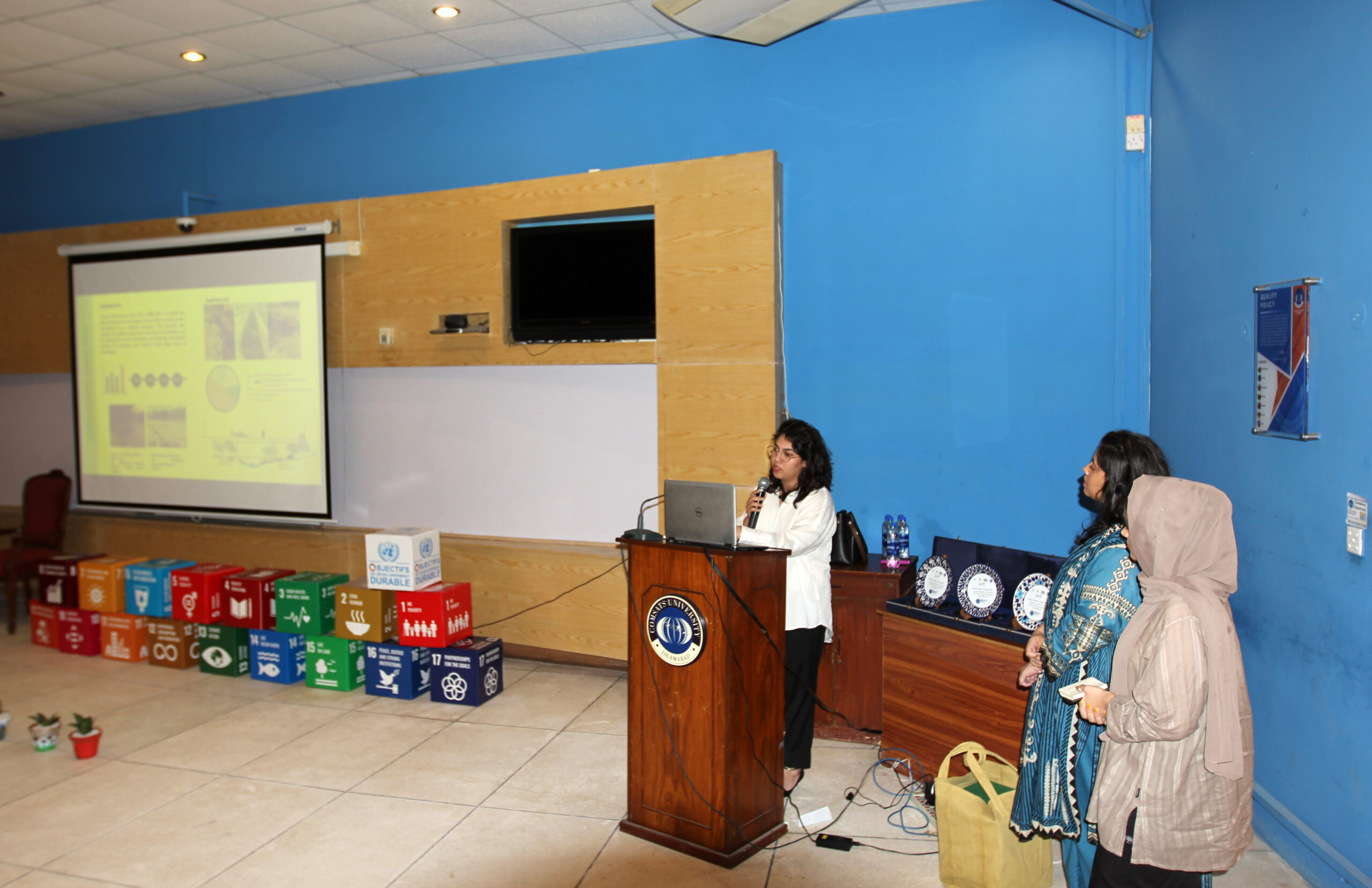URBAN THINKERS CAMPUS 2023
Urban Farming Practices in the Context of Climate Change Adaptation and Resilience
 The Urban Thinkers Campus (UTC) is an initiative of UN-Habita t’s World Urban Campaign, conceived in 2014 to serve as a platform advocating for enlightened urban planning and design. Its primary aim is to propose urban solutions that address the challenges posed by urbanization and contribute to the betterment of urban futures. This year’s UTC focused on the theme of “Urban Farming Practices in the Context of Climate Change Adaptation and Resilience.” The event was organized in collaboration with the World Urban Campaign, UN-Habitat Pakistan, Shehersaaz, and COMSATS University, Islamabad. The panel discussion featured notable experts, including Mr. Sridhar Dharmapuri, Senior Food Safety and Nutrition Officer at FAO Bangkok; Mr. Khalil Ahmed, Project Manager at UN-Habitat; Ms. Zilehuma, Assistant Professor at COMSATs University, Islamabad; Dr. Nausherawan Nobel Nawab, Principal Scientific Officer at Horticulture Research Institute, NARC, Islamabad; Dr. Adnan Amin from COMSATs University, Islamabad; and Mr. Abdul Shakoor, an Urban Planner and Environmental Designer.
The Urban Thinkers Campus (UTC) is an initiative of UN-Habita t’s World Urban Campaign, conceived in 2014 to serve as a platform advocating for enlightened urban planning and design. Its primary aim is to propose urban solutions that address the challenges posed by urbanization and contribute to the betterment of urban futures. This year’s UTC focused on the theme of “Urban Farming Practices in the Context of Climate Change Adaptation and Resilience.” The event was organized in collaboration with the World Urban Campaign, UN-Habitat Pakistan, Shehersaaz, and COMSATS University, Islamabad. The panel discussion featured notable experts, including Mr. Sridhar Dharmapuri, Senior Food Safety and Nutrition Officer at FAO Bangkok; Mr. Khalil Ahmed, Project Manager at UN-Habitat; Ms. Zilehuma, Assistant Professor at COMSATs University, Islamabad; Dr. Nausherawan Nobel Nawab, Principal Scientific Officer at Horticulture Research Institute, NARC, Islamabad; Dr. Adnan Amin from COMSATs University, Islamabad; and Mr. Abdul Shakoor, an Urban Planner and Environmental Designer.
The discussion began with remarks from Executive Director Ms. Almas Shakoor, who emphasized that Pakistan is the fifth most vulnerable country to the impacts of climate change, despite its low contribution to greenhouse gas emissions. The challenges posed by climate change, especially in the context of cities, urban poverty, and food security, are recognized globally. Sustainable solutions addressing food, water, energy, and transportation as integrated components of urban climate change adaptation and disaster risk management plans are urgently needed.
The panelists underscored the pivotal role of urban farming in enhancing food security for urban populations, building resilience, mitigating the Urban Heat Island Phenomenon, greenifying cities, and improving urban climates. Additionally, urban farming stimulates the productive reuse of organic waste and reduces urban energy consumption.
The session concluded with several proposed solutions:
- Mandatory development of community gardens and terrace gardens for communities.
- Provision of training for urban farmers and community members to introduce new urban farming techniques and emerging marketing methods.
- Investment in research on seeds to reduce Pakistan’s dependence on imports.
- Implementation of awareness campaigns to promote rooftop and terrace gardening.
- Utilization of rainwater through community-level Rainwater Harvesting Units (RWHU) for daily household needs and plant watering to enhance food security.
- Planting fruit trees along roadsides for the benefit of all.
- Encouraging individuals with knowledge of composting and urban farming techniques to support and educate others, fostering a healthy community lifestyle.
- Promoting proactive community engagement in building a food-secure environment and cultivating a sustainable culture at the micro level.
These solutions highlight the importance of collective action and community involvement in addressing urban challenges and climate change resilience.


